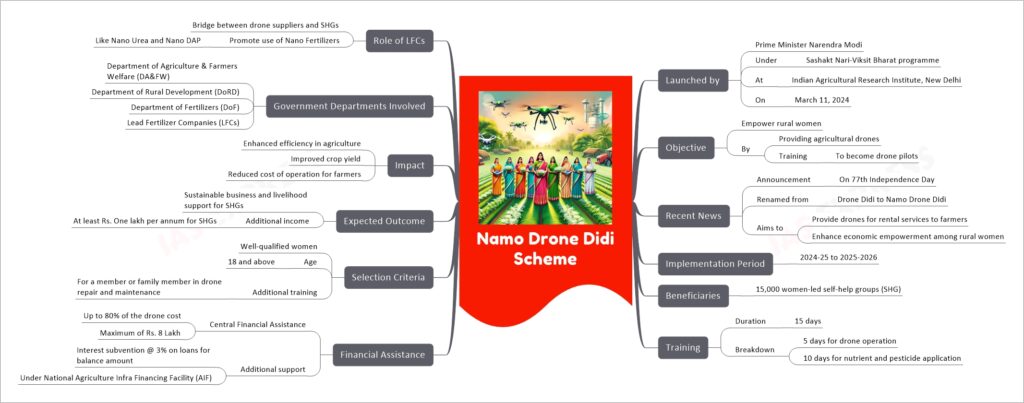Namo Drone Didi Scheme

The Namo Drone Didi Scheme is a visionary initiative launched by Prime Minister Narendra Modi under the Sashakt Nari-Viksit Bharat programme, aimed at empowering rural women by providing them with agricultural drones and the necessary training to operate them. This scheme not only seeks to enhance the economic empowerment and financial autonomy among rural women, particularly in rural areas, but also aims to modernize agriculture with new technologies, thereby benefiting the agriculture sector as a whole through improved efficiency and productivity.
If you like this post, please share your feedback in the comments section below so that we will upload more posts like this.

